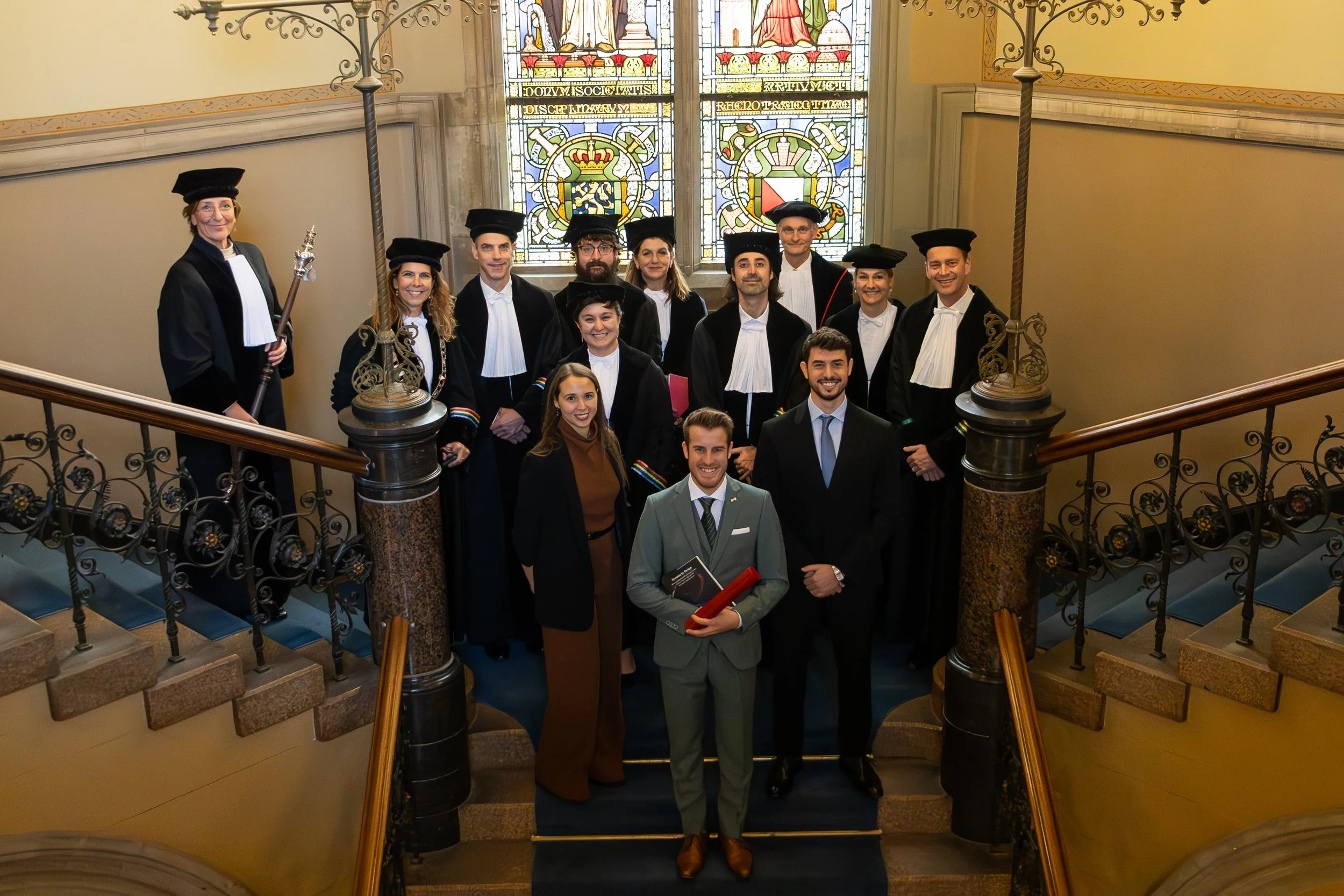MARC FALANDT DEFENDS PHD ON 4D BIOMATERIALS
24-11-25
On November 13th, Marc Falandt successfully defended his PhD thesis titled “Dynamic by Design: Advancing Biomaterials to Further Mimic Native Tissues in 3D and 4D Volumetric Biofabrication” to obtain a doctoral degree at Utrecht University. His work addresses one of the most critical challenges in translational medicine: the limited predictive value of animal models for drug development and regenerative therapies.
In his thesis, Marc focused on designing innovative 4D-manipulable biomaterials that better replicate the dynamic environment of human tissues. His research contributes to the development of advanced, functional in vitro tissue models using 3D bioprinting technologies.
Among the key advances:
Development of chemically defined hydrogels for precise spatiotemporal biofunctionalisation using volumetric bioprinting and photografting, improving cell coverage and invasion.
Introduction of AddGraft, an off-the-shelf additive enabling 4D photografting across a range of acrylated hydrogels without altering their bulk properties.
A thermally responsive strategy to improve bioprinting resolution, allowing for controlled post-printing size reduction of printed channels.
Design of HybriGel, a hybrid supramolecular hydrogel that supports cell migration and decouples matrix stiffness from cellular microenvironments.
Combination of AddGraft and HybriGel into a modular, dynamic biomaterial platform that enables fine control over mechanical and chemical cues in both space and time.
Marc’s work represents a shift in how biomaterials are conceptualized, not just as passive scaffolds, but as active, adaptive systems that interact dynamically with their environment.
Congratulations, Marc, on this important achievement and contribution to the future of biofabrication and tissue engineering!


